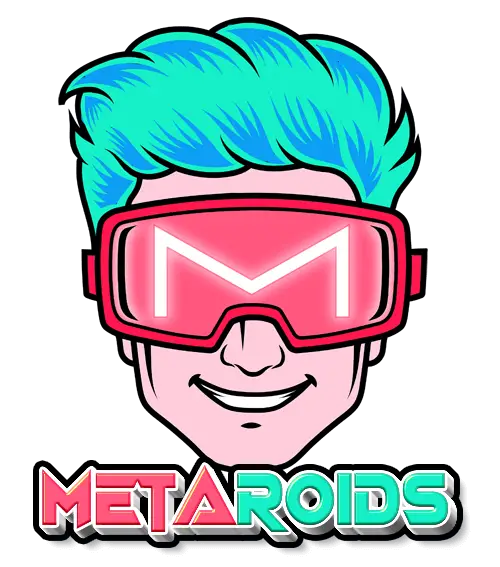As the metaverse remains to be a vague concept, the consequences of an avatar’s “death” in virtual worlds raise a bigger question.
What happens when you die in the metaverse?
Of course, you as the ‘user’ would still be alive in the real world, or at least, we hope that remains to be the case. But in all seriousness, what are the consequences of metaverse death?
Apparently, there is a lot of debate going on around this topic, and the answer isn’t as cut and dried as we want, but there are many individuals and organizations seriously exploring these issues. If we are to learn from Steven Spielberg’s box-office movie ‘Ready Player One,’ a virtual world platform may be designed in such a way that if a user’s character dies, all their collected loots, virtual money, equipment, and other items also disappear with them. In the film, there is even a deadly bomb called ’The Cataclyst’ that could wipe out all characters in the metaverse, which seems like a dumb idea for an in-game item.
Imagine spending decades accumulating virtual riches (all of which have real-world value) and losing them in one battle. There was even a scene where a Japanese guy jumped off a building after his avatar died.
But that’s fiction. The real metaverse will likely be more practical and sensible if it were to proliferate. However, it serves as a hint on the possible economic impact of an avatar’s death in the metaverse and how it might directly affect owners in real life. This fictional scene may also reflect the metaverse’s trajectory of becoming a more realistic world, not only in terms of visuals but also of consequences.
SpaceX CEO Elon Musk also expressed interest in the concept of a metaverse death when he posted a meme that says, “If you die in the metaverse, you die in real life,” with Meta CEO Mark Zuckerberg as its backdrop.
Since Zuckerberg is aggressively building his metaverse with Meta Platforms, it will be interesting to know how “death” would turn out in his virtual world, which we can guess by picking up clues from his current platforms.
The closest virtual deaths that Meta imposes on “misbehaving” users these days are ”de-platforming” and ”demonetization,” which forfeit owners’ rights to use their social platforms or earn from them, respectively. These actions are only applicable to users that have been proven to violate Meta’s community policies.
These virtual punishments cut out users from their vast social connections and sources of income, which can seriously impact their livelihood. If Zuck’s metaverse ends up becoming larger than Meta as it is today, it may be able to lay down direr consequences and harsher punishments for users. And don’t even get us started with Apple’s potential metaverse.
Can You Literally Die in the Metaverse?
Technologies, laws, and regulations may prevent, limit, or accelerate the possibility of ‘real death’ in the metaverse, and only time will tell if this scenario could actually play out in the future. But if a metaverse death would ever result in real-life death, what could exactly kill the users behind the avatars?
It’s easy to dismiss the idea right now, but we truly don’t know what the future holds.
The popular anime Sword Art Online (SAO) depicts a virtual MMORPG gaming world that is way more advanced than what gaming metaverses are currently building today. Instead of using a VR headgear, gamers use a helmet-like apparatus called a “NerveGear” that allows them to experience a virtual world with the full immersion of their five senses, which makes it as close to reality as one can get.
The only catch is that if you die in this metaverse, you also die in real life as the NerveGear kills players by beaming high-powered microwaves into their brains if their points hit zero or if they forcefully remove the device.
A real-life NerveGear may still be decades from being possible. But what kind of idiot would build such a harmful device?
The closest possible technology that could potentially create a NerveGear-like apparatus would be Elon Musk’s Neuralink brain microchip, which he claims could one day bring a fully immersive metaverse. In theory, it works very similarly to the NerveGear where it beams content directly to people’s heads and could potentially be used as a killing feature for players. But then again, why would anyone make this?
What Happens if You Murder Someone in the Metaverse?
Right now, no one really knows as experts have varying opinions regarding this matter, but there is an ongoing discussion about whether existing laws should prosecute and legally punish “avatar murderers,” and how would platforms play a role in enforcing these types of regulations.
According to Pace University cybercrime and security professor John Bandler and Reed Smith LLP lawyer Greg Pryor, legal charges may be possible, but they’re not exactly the type that victims want to file. They further clarified that metaverse crimes might not automatically be construed as real-life violations. In other words, an avatar “killer” may not receive the same legal punishment as a real-life murderer, despite whatever consequences there may be for avatar death.
This possibility is rooted in the fact that governments, or their laws, are mandated to protect human beings. If metaverse violators bear any legal consequences, it will likely be limited to speech-related charges; racism, sexism, the usual stuff. But since avatars are evolving as economic tools for owners, it may someday be possible to charge ‘meta-murderers’ with harsher but still economically-related charges.
Roberts Law Group lawyer Patrick Roberts completely denies the possibility of filing legal charges against metaverse violators. Since avatars are typically anonymous, it would be hard to prosecute the people behind them, making it an elaborate (and even costly) task to hunt them down. This could be more prevalent in web3 metaverses like Decentraland, Somnium, and The Sandbox, where there is a strong push towards anonymity.
While the legal route may prove to be challenging, it suggests bringing the responsibility to the metaverse creators, which have ‘jurisdictions’ over these worlds. Virtual world operators, whatever shape or form they become in the future, would need to impose punishments such as account restrictions, which may not bring violators behind bars but could possibly cause severe impacts on their metaverse life. But this is easier said than done considering that operators would likely prioritize keeping their users happy in order to remain competitive, and harsher punishments and restrictions may not be in line with their plans.
When all is said and done, existing laws may need to be amended to protect avatar owners and prosecute metaverse “criminals” more effectively. And this extends to all sorts of harassment, sexual or otherwise. Moreover, new laws that specifically cover these critical issues may add a layer of protection for the metaverse.
But it might be too early to celebrate these possibilities considering that we don’t even know how the industry will evolve.
Conclusion
The challenge in dealing with current metaverse issues is that there is so much we don’t know yet. All we know is that virtual worlds and avatars will be involved and that it will happen at some point in the future. Still, it’s great to recognize these matters in order to be able to nip them in the bud, should they arise one day. And if you want to become an early adopter, or better yet, a pioneer, it will do you wonders to learn as much as you can about the metaverse at this stage.
Why not become a pioneer now? There are no prerequisites, so why not take the first step today?
Join our newsletter as we build a community of AI and web3 pioneers.
The next 3-5 years is when new industry titans will emerge, and we want you to be one of them.
Benefits include:
- Receive updates on the most significant trends
- Receive crucial insights that will help you stay ahead in the tech world
- The chance to be part of our OG community, which will have exclusive membership perks



